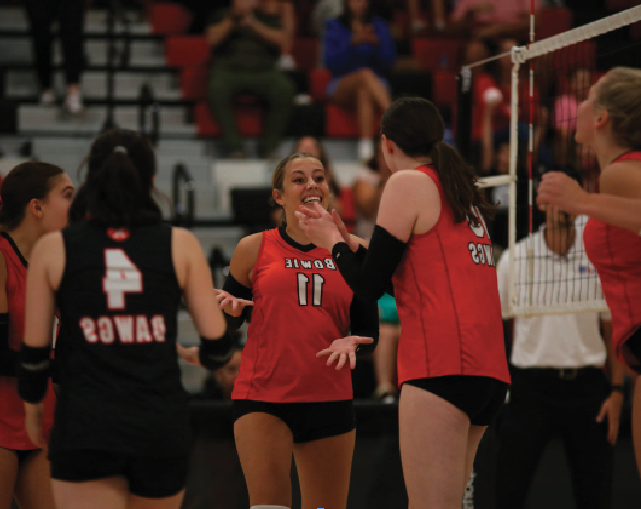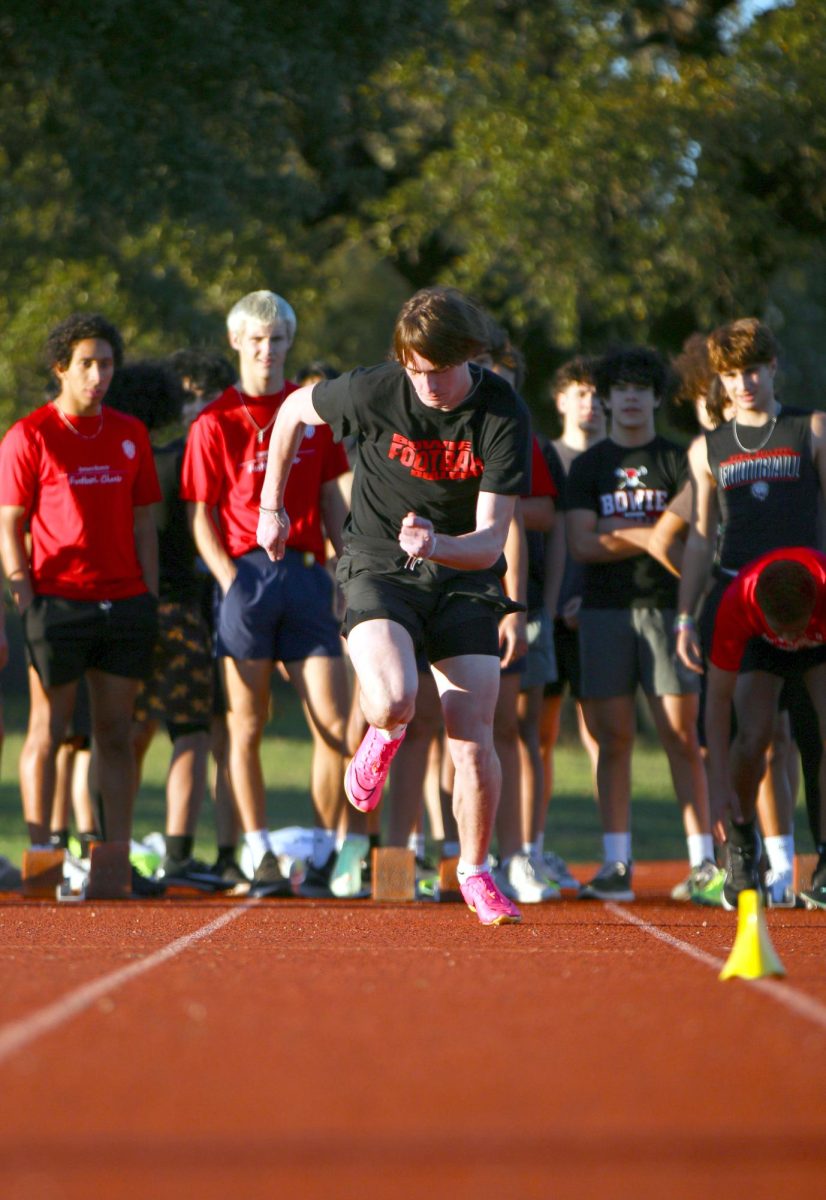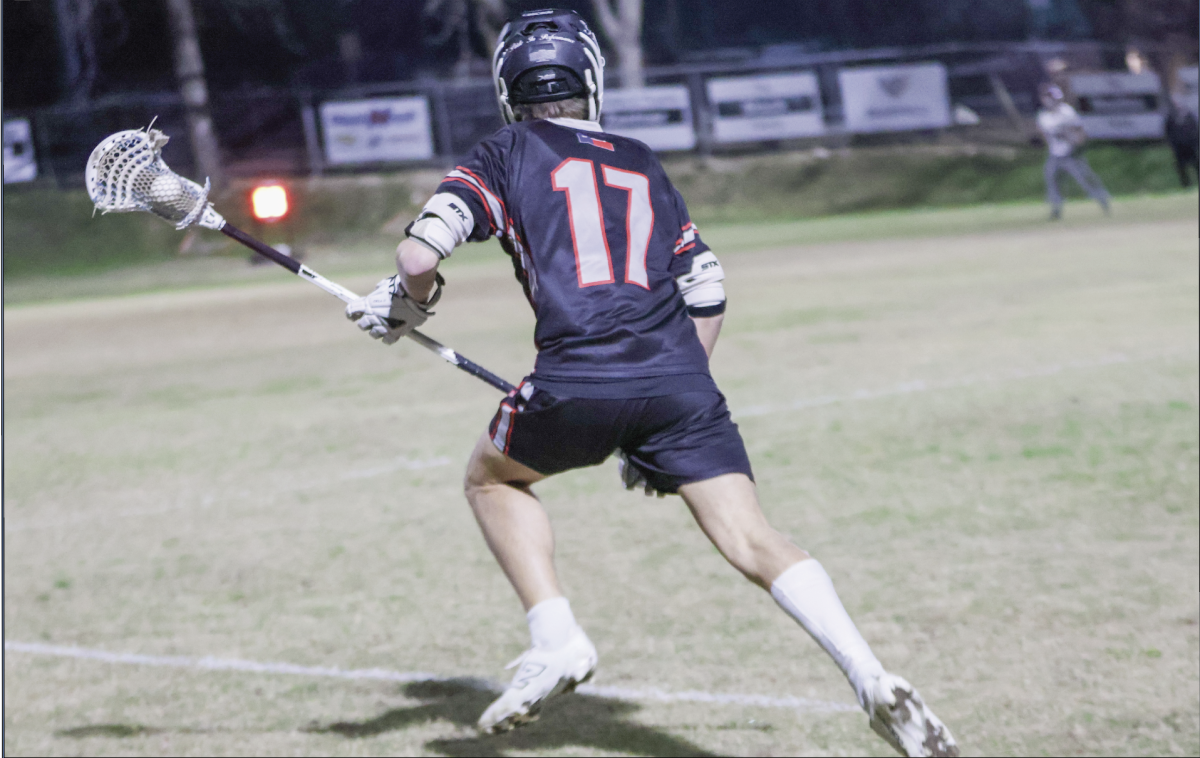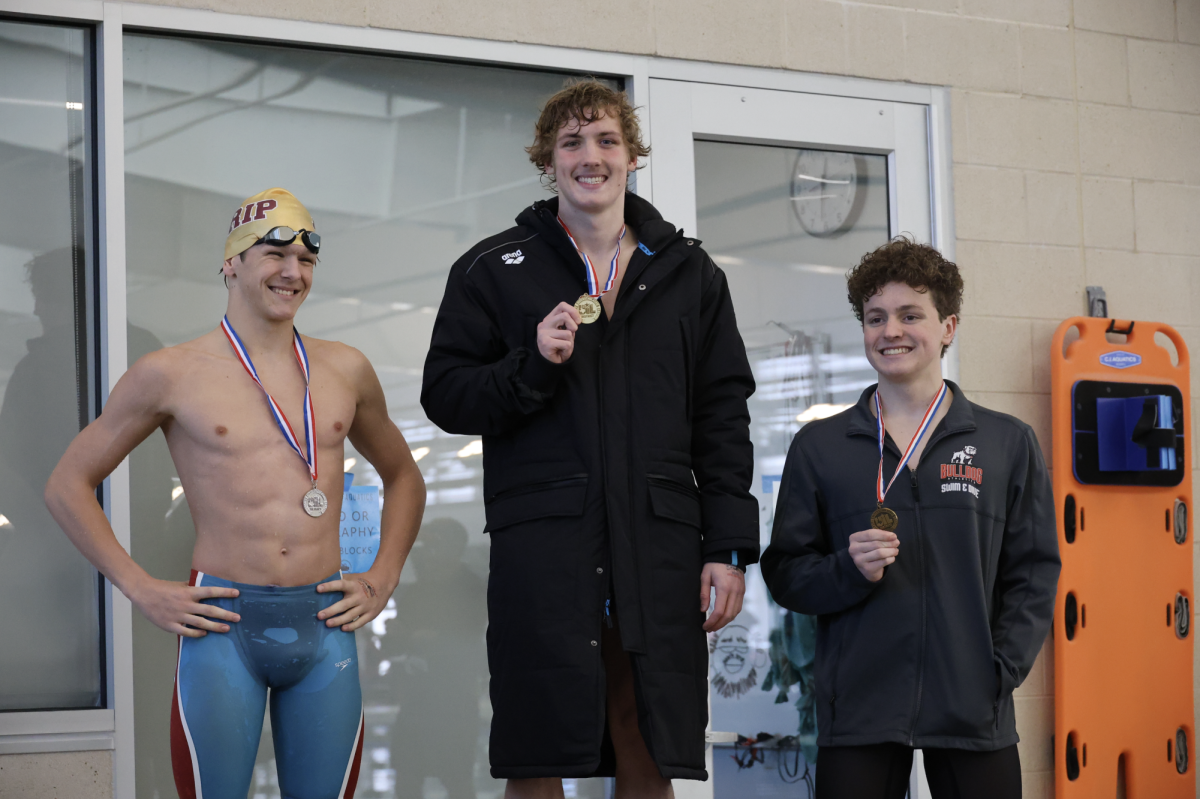Pushing to exhaustion and slicing through the water, senior Natalia Portilla began rowing in March of 2024, now less than a year later, her sacrifice and commitment to the sport has now led her to pursue rowing for a collegiate program. Portilla had a unique upbringing to the tranquil, yet intense sport.
“It actually started with my brother going to a practice,” Portilla said. “I went to pick him up one day, he did not end up liking it, but I thought it looked fun so I joined one day. I loved how competitive the sport was and how versatile it was. You can be on a team but also row individually. Ever since I started, the sport has challenged me both mentally and physically.”
Due to the extremities of the sport, a rigorous training schedule is needed in order to keep up with the best. Portilla has stuck to a routine that she has found to help propel her up the leader-boards.
“In the mornings I wake up around 7 a.m. to use the rowing machine,” Portilla said “I eat a healthy high protein breakfast before heading to school to do weightlifting. I also practice after school from 5-7 p.m. where we either go out on the water or do a land workout on the rowing machines. When the weather is poor we will find another workout to do. I also try my best to sleep and properly recover with a sauna and Epsom’s salt baths in order to perform at full capacity.”
Coaches look at a variety of different characteristics to choose the best fit for their team. Physically, coaches typically look for a certain height and weight to best suit their positional needs. Coaches all look for the intangibles as well, such as character, attitude and academics. Most importantly, the biggest factor in recruiting is their times, in order to be successful at a collegiate level, performance is above all.
“My primary goal every time I step into the water is just to improve my times,” Portilla said. “As my times improve, I can advance to bigger competitions like regionals and nationals. In the future I can hopefully continue to break my own records and pursue it professionally.”
For Division 1 sports, the NCAA provides up to 68 full scholarships depending on each individual school’s funding and the athletic director’s use of spending. According to NCSA sports,There are currently 89 rowing teams in Division 1 and there is an average of 47 athletes per team.
“I started the recruiting process summer before senior year,” Portilla said. “This was the same time I started the process of applying to schools, I spent a lot of time researching every school and seeing if they had a rowing program. I started emailing coaches and filled out questionnaires. To my surprise a lot of them got back to me, and I stayed in close contact with a couple of them.”
Portilla has made lots of sacrifices order to dedicate herself to rowing. Her most important decision came when she decided to drop basketball, the sport that she has been playing for over a decade. Portilla was a starter on the Lady ‘Dawgs basketball team before quitting just a few weeks into the season.
“I was not really sure if I fully wanted to commit to rowing,” Portilla said. “I still really loved basketball and it put me in a really tough spot. After talking to several of my rowing coaches, and seeing all the opportunities there were in rowing, I knew that is what I wanted to do.”
Portilla has been developing at the Texas Rowing Center for the last several months. Coach Liz Hiebel has been the main coach that has been helping her transform as a rower, ever since she moved up to the top team in October. The program takes place on Ladybird Lake in downtown Austin.
“My program is heavily focused on increasing the baseline fitness for all the girls on the team and being able to translate that fitness to the water,” Hiebel said. “We work on our strength and resilience at practice every day, but it is up to the individual to push themselves in order to get the times and scores they want to achieve.”
Hiebel has plenty of rowing experience. She was a collegiate rower for a very successful University of Minnesota rowing program, where she consistently started for several years on the team. This experience has helped her in her new profound coaching career. Including her ability to help communicate with college coaches.
“I have contacts at a lot of schools,” Hiebel said. “The path is very different for every athlete depending on the school they are looking at. Sometimes coaches reach out to me to ask about a specific athlete. Other times my athletes will reach out to certain schools and the coaches will reach out to me to hear what I have to say about their athletic and academic performance. Either way, my job stays the same, I stay honest with the coach and support the athlete in the really exciting time of recruiting.”
One of Portilla’s biggest supporters throughout her blossoming career is her twin sister Valeria. Valeria has been able to attest to the growth of Natalia by seeing her progression as an athlete since she was young.
“I see my sister succeed in everything she does, not just sports, but in school and in life,” Valeria said. “Having her as my twin, we have lived almost everything together and her success continues to grow. Through rowing, she has already achieved so much in such a short period of time and it shows a lot about how relentless she is.”










